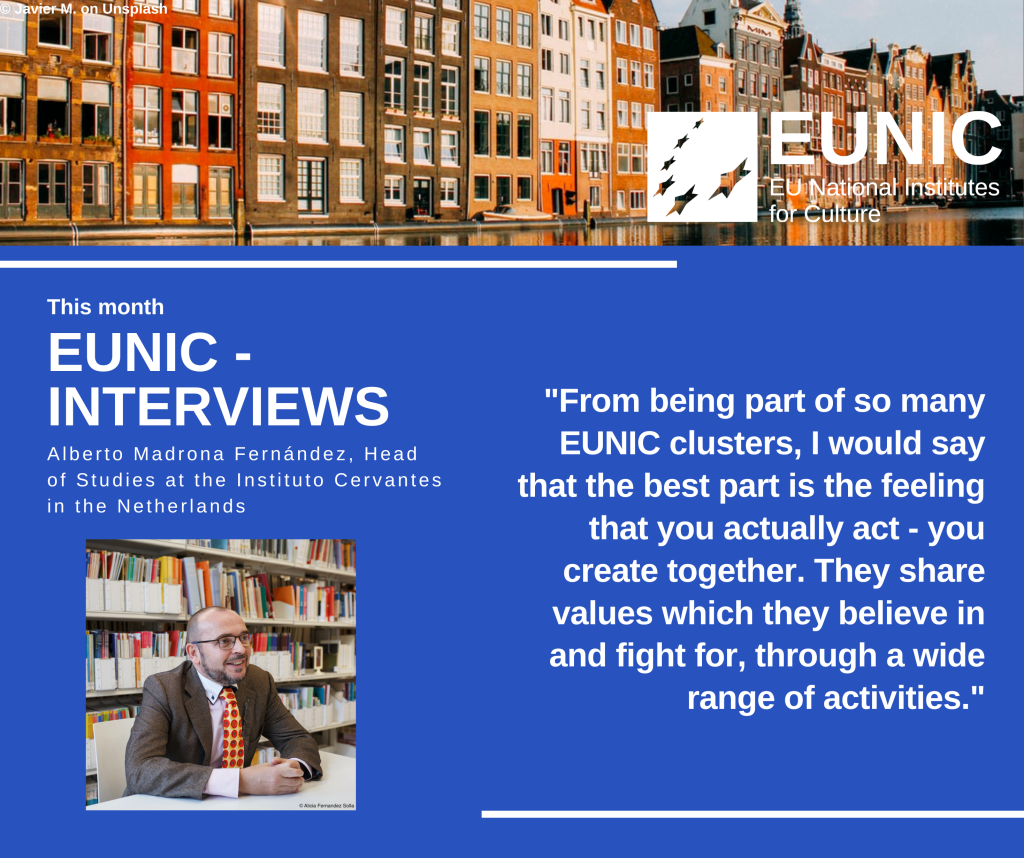As we welcome the New Year, we had the pleasure of chatting with Alberto Madrona Fernández, who is the Head of Studies at the Instituto Cervantes in the Netherlands. Read on to learn more about his role at the institution and what he loves most about being part of the EUNIC Netherlands cluster!

1) What role do you play in your institute/embassy?
I am the Head of Studies at the Instituto Cervantes in the Netherlands, whose headquarters are in Utrecht. My job consists of planning the institute’s activities, basically Spanish language courses for foreigners, courses for the co-official languages in Spain (such as Catalan, Galician and Basque), Spanish courses for children, and things like that. In addition, I am in continuous contact with Dutch educational institutions like universities, hogescholen and teacher associations of Spanish, among others.
My second task is to manage the language certification exams, DELE and SIELE, in the country.
2) How do you contribute to EUNIC?
I have been living outside of Spain for 29 years, in very different countries, and all of my work as an academic coordinator is based on the values promoted in the EUNIC clusters: selecting a varied and inclusive teaching staff, promoting a curriculum where values prevail such as integration, critical analysis, and education for citizenship, as well as promoting respect and dialogue in the classroom. And, of course, actively organizing the celebration of the International Day of Languages: here in the Netherlands, I have already participated twice in the Openbare Bibliotheek Amsterdam speak-dating, which is a fabulous event.
3) What is the best aspect about being a EUNIC Netherlands’ member?
Actually, the representative of the Instituto Cervantes for EUNIC is the director of the centre, not me directly. However throughout all these years, from being part of so many EUNIC clusters, I would say that the best part is the feeling that you actually act – you create together. They share values which they believe in and fight for, through a wide range of activities.


